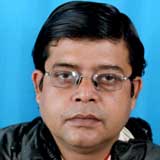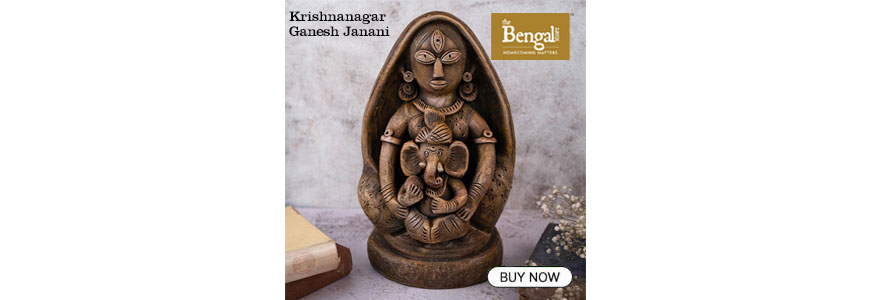‘Bioscopewala’ Doctor helps Bengal’s tribals wage war against superstition – GetBengal story
If you step outside at any time of the day or night and look up, you are bound to see a world filled with limitless wonders: majestic rainbows, dramatic cloud formations, stirring sunsets, intricate constellations, captivating solar eclipses, and even the distant planets themselves. However, these and other breathtaking natural phenomena are more than just pretty objects to be admired. Rather, they are the result of fascinating atmospheric and astronomical processes that describe right in front of you important concepts in scientific fields. Dr. Partha Pratim is a familiar figure travelling in the remote tea gardens of North Bengal with his telescope. He is a man with a mission. He engages local villagers and tea garden workers to share his passion for sky watching and understanding cosmic wonders. He instills in them the awe and wonder at the sky above their heads. With him, they discover answers to dozens of questions that have perplexed them since childhood, such as why the sky is blue and why the full moon looks largest when it is closer to the horizon.
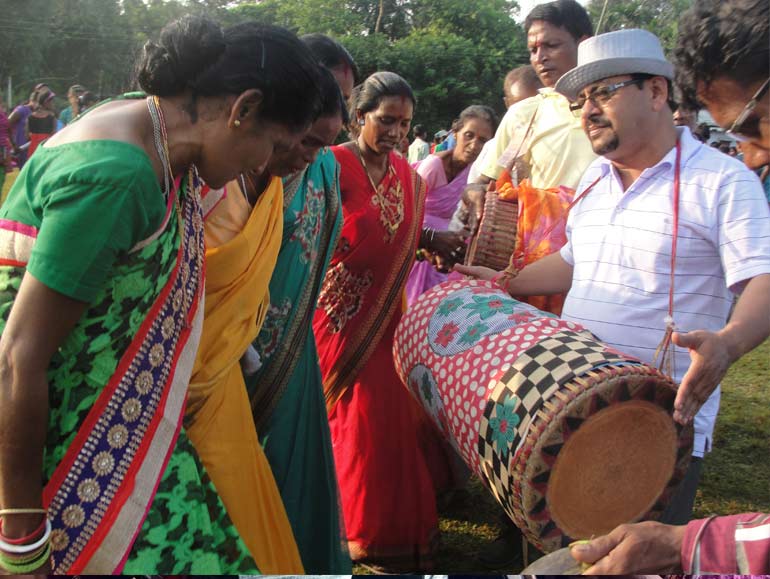
To truly understand and enjoy the wonders in the sky requires a solid understanding of the science behind where these wonders come from and how they are formed, as well as insights into the best times and places to see them and simple equipment and other steps one can use to improve what one sees at any time. Hence, one is curious to know why did Dr Partha Pratim zero in on involving villagers to sky watching. He says, ““The real objective of this mission is to dispel superstitions from the society. In fact, the origin of superstition stems from this endless horizon. Superstitions originated from a fear of the gods who lived in the sky above. People did not know the answer to many questions like the origin of the sun and the moon, why there is lightning in the sky, why there are clouds, how is rain formed etc. and from this realm of the unknown and unexplored, various celestial deities were derived. The tradition continues to this day. Hence, it is essential to eradicate superstitions and it is best achieved by spreading and inculcating scientific outlook among the masses.”
Dr. Partha Pratim is a resident of Banerhat in Dooars aka Duars, the alluvial floodplains in the foothills of the eastern Himalayas in North-East India around Bhutan. ‘Duar’ means 'door' and the region forms the gateway to Bhutan. Dr. Partha Pratim is a Homeopathy doctor but his other mission is to educate the masses, arouse their curiosity and encourage them to explore and discover the science behind all natural phenomena around them. He has been diligently working to exterminate all traces of superstitions from the lives of poor people living in the tea estates, tribal areas, slums or villages. During the pandemic, Dr Partha Pratim relentlessly campaigned against the spread of COVID-19, advocating for social inclusion and incorporating the most vulnerable into the mainstream social service system, organizing communities in ensuring the availability of essential items like food and clean water, as well as facilitating physical distancing and social solidarity through campaigns and orientation programmes. He encouraged locals to use herbs and spices like black cumin, pepper and ginger in cooking. He also emphasized the importance of physical exercise and consuming turmeric to enhance immunity.
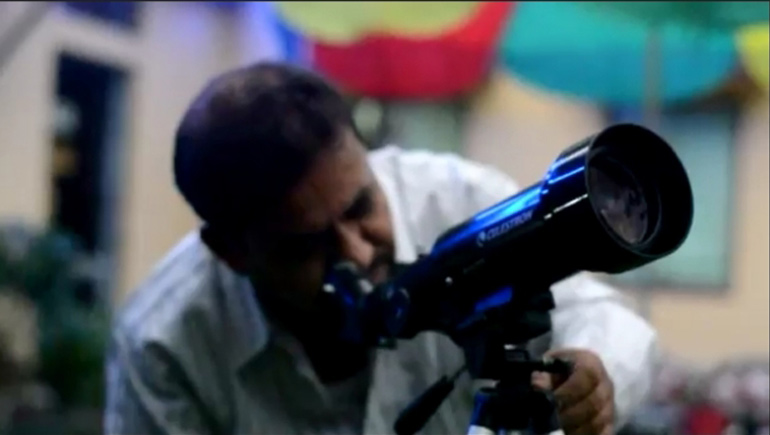 Dr. Partha Pratim with his telescope
Dr. Partha Pratim with his telescope
Dr. Partha Pratim stopped using his surname when he realized the use of surnames emphasized the importance of the ancient caste system, an institution that he abhors and wants to break free. He has been in the medical profession for more than three decades and still raring to go. He has been spearheading his war against unfounded beliefs and myths simultaneously. He has always stressed on the dissemination of scientific knowledge and inculcation of scientific temper in society. Hailing from the lush tea gardens of Banerhat, Dr Partha Pratim witnessed the death of one of his close friends at home right in front of him during his childhood due to the family’s faith in superstitious mumbo-jumbo. This incident left an indelible mark in him. He noticed how the people living in the slums of tea gardens nurture and religiously follow superstitions. As he grew up, he witnessed a large number of deaths among tribal people occur simply because of their reluctance to avail medical help or have medicines. This braced his determination to fight against superstitions and develop scientific temper among the masses. His war continues to this day.
In collaboration with the Duars Exploration and Advancement Rivalry organization, Dr. Partha Pratim and his team of 15 to 20 volunteers have been visiting neighbouring villages and slums twice a week to conduct science camps on the spot. Many villagers have nicknamed him ‘Bioscopewala’ (the roving movie operator). Dr Partha Pratim first participated at the All India Science Fair held in Bangalore in 1981 where he startled audience with his innovative aqua telescope. Educators and political bigwigs like the former sixth President of India, Neelam Sanjiva Reddy, Union Minister S.B Chavan and Sheela Dixit praised his innovation. In 1988, he trained in journalism and mass media and in 1991-1992, he served as Chief Convener of All India Science Club. He has also been editing various magazines. In 2001, his first book was published during Kolkata Book Fair. Renowned author Narayan Sanyal wrote the foreword of the book. The doctor has also written numerous articles on health awareness. He has authored an exhaustively researched book on diabetes. He is keen to do research on traditional Ayurvedic medicines as well. He has seen tribal villagers use various parts of medicinal trees and plants to cure ailments like blood dysentery, cough etc. However, they cannot name those trees. Dr. Partha Pratim wants to work on the herbage in the future.
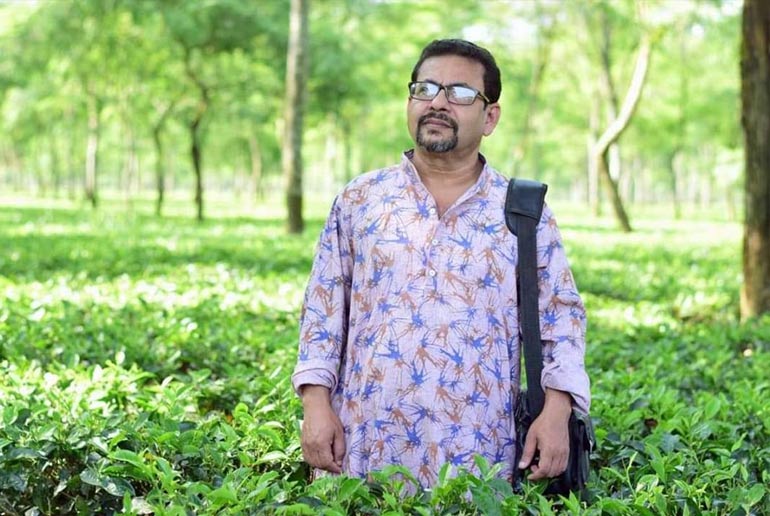 Dr. Partha Pratim, the 'Bioscopewala' of Banerhat, Jalpaiguri
Dr. Partha Pratim, the 'Bioscopewala' of Banerhat, Jalpaiguri
Meanwhile, the lone physician continues his war against social prejudices and beliefs based on fables and myths. His reputation as a kind ‘Bioscopewala’ doctor precedes his visits and he too, tries to do full justice to the nickname. He treats many of his patients free of cost and with his telescope, allures villagers to range over the myriad magic of science and opens immeasurable possibilities of exploring the sky.

-Scheme-during-Rabi-2025-26--Agriculture.jpg)





